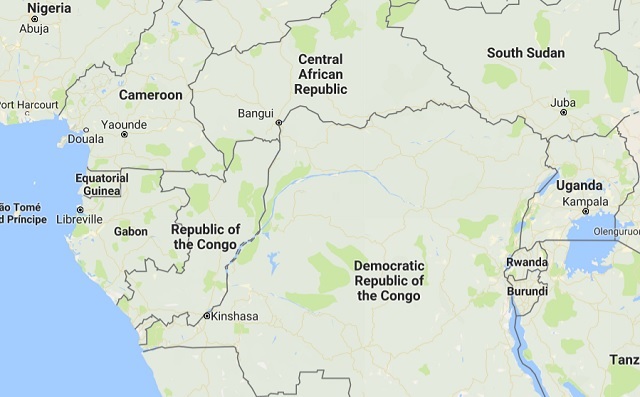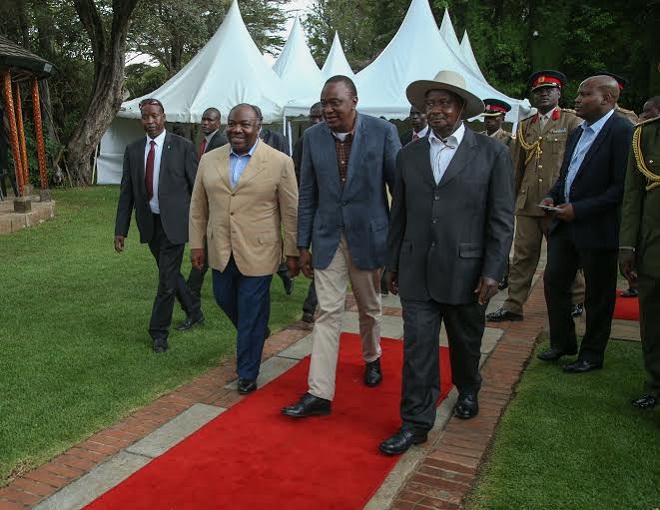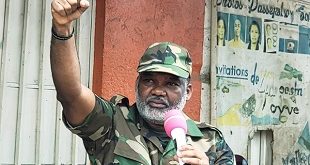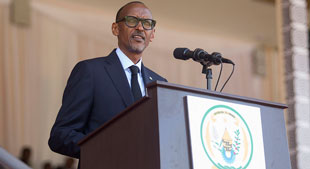
LIBREVILLE, Gabon | AFP |
One of Africa’s largest oil producers and among the continent’s wealthier nations, small lush Gabon holds a presidential election Saturday at a time of rising social tension due to the global slump in oil prices.
The vote sees one of the strongest challenges yet to 50 years of rule by the Bongo family, with incumbent Ali Bongo, who stepped into his father’s shoes on his death in 2009, challenged by one of Africa’s foremost diplomats, ex-African Union Commission chief Jean Ping.

A central African oil ’emirate’
Because of its potential to use abundant offshore oil reserves discovered in the 1970s to build a strong middle class, Gabon was once dubbed “central Africa’s little emirate”.
Oil accounts for 60 percent of the country’s revenues.
But with world prices sliding, forcing layoffs in the oil sector, Gabon rejoined the Organisation of Petroleum Exporting Countries (OPEC) in July after more than 20 years outside the cartel. It is OPEC’s smallest member, pumping 200,000 barrels/day.
Gabon is the world’s second largest producer of manganese, and its vast forests provide 12 percent of global timber exports, including coveted tropical hardwoods.
Wealthier than most in Africa
Gabon in 2015 was ranked 110 out of 188 countries on the United Nations Human Development Index — among the top 10 African nations listed on the index.
Per capita gross national income (GNI) in 2015 was estimated at $9,210 (8,130 euros) by the World Bank — about four times greater than in most sub-Saharan African nations.
But because of high income inequality, about one-third of Gabon’s population of 1.8 million people still live below the poverty line.
Between 2010 and 2014, the economic growth rate was about six percent but it has fallen to 3.9 percent in 2016, according to a World Bank forecast, because of the slump in global oil prices.
Forests and chimps
Straddling the equator on Africa’s Atlantic coast, forests cover about 80 percent of Gabon, hosting amazing wildlife.
In 2002, Omar Bongo created 13 new national parks that cover around 11 percent of Gabon’s territory to protect its wildlife and forests from excessive logging.
Gabon has sought to cash in on eco tourism by showing off its wild gorillas, chimpanzees, panthers, elephants and hippos.
At 267,667 square kilometres (103,346 square miles), Gabon is slightly larger than the UK, two-thirds the size of Japan.
Stable government but at a price
The country has enjoyed relative political stability, mainly because former colonial power France helped Omar Bongo rule for 41 years, the third longest reign in modern Africa after Haile Selassie of Ethiopia and Moamer Kadhafi of Libya.
After he died in June 2009, his adopted son Ali won an election but opposition media claimed he had essentially been installed by France.
The population is roughly 80 percent Christian, while Muslims and animists account for the other 20 percent.
CAN football finals
Gabon next year hosts the prestigious Africa Cup of Nations (CAN) football championship finals, starting in January.
Record seven-time champions Egypt and first-time qualifiers Guinea-Bissau are among 10 countries who have so far booked places at the 2017 Africa CAN.
Algeria, Cameroon, Ghana, Mali, Morocco, Senegal and Zimbabwe also secured places and Gabon are automatic participants as hosts of the 16-nation tournament.
 The Independent Uganda: You get the Truth we Pay the Price
The Independent Uganda: You get the Truth we Pay the Price


